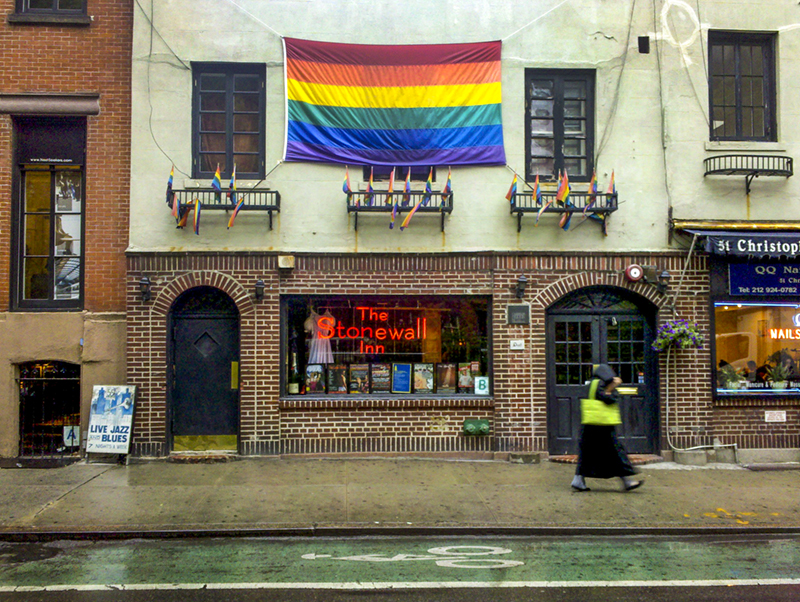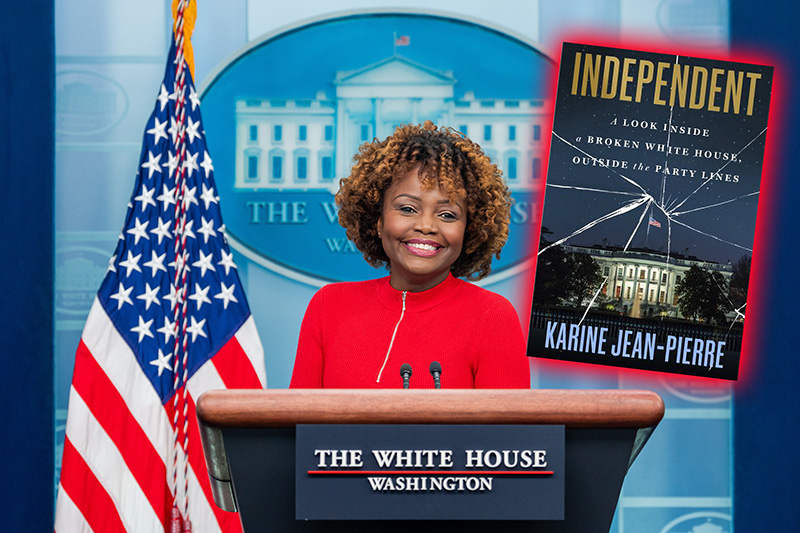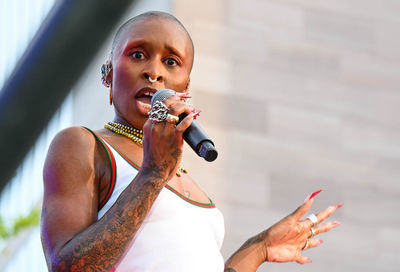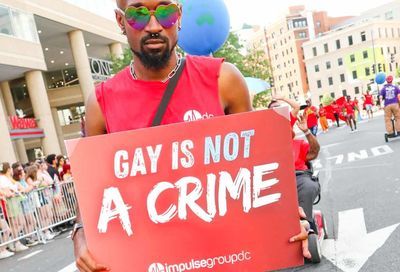President Biden slams Florida’s so-called “Don’t Say Gay” bill
Supporters insist measure is about keeping inappropriate content out of the classroom, while critics say it will be enforced as a gag on LGBTQ students' free speech.

President Joe Biden issued a message of support to LGBTQ students, speaking out against a “Don’t Say Gay” bill moving through the Florida Legislature that would ban the discussion of sexual orientation and gender identity in school classrooms.
“I want every member of the LGBTQI+ community — especially the kids who will be impacted by this hateful bill — to know that you are loved and accepted just as you are,” Biden tweeted. “I have your back, and my Administration will continue to fight for the protections and safety you deserve.”
The bill, which critics have dubbed the “Don’t Say Gay” bill passed the State Senate Education Committee along party lines on Tuesday, with Democrats arguing that the bill will be interpreted and enforced by school districts in a way that effectively gags any discussion about LGBTQ-related topics, even in passing.
A nearly identical version working its way through the House of Representatives was reported favorably from the Florida House Education & Employment Committee and has since been referred to the House Judiciary Committee.
Republicans have touted the bill as a “parental rights” measure that will alert parents before their children are exposed to topics to which they morally object or think should not be broached in school, such as sexual orientation or gender identity.
They also maintain that the bill only restricts teachers in primary grades from “encouraging discussion’ about those topics “in a manner that is not age-appropriate or developmentally appropriate for students.”
The text of the bill does not define or provide examples of what is meant by the terms “age-appropriate” or “developmentally appropriate.” The bill also fails to define what “primary grades” are, although the bill’s sponsor has since declared, in follow-up interviews, that the term refers to students in grade levels from preschool to Grade 5.
The Senate Education Committee’s approval of the “Don’t Say Gay” bill came a day after Gov. Ron DeSantis (R) expressed support for the measure, telling reporters that it was “entirely inappropriate” for teachers to be talking about topics like sexual orientation or gender identity with students, reports NBC News.
“Schools need to be teaching kids to read, to write,” DeSantis said during a press conference. “They need to teach them science, history. We need more civics and understanding of the U.S. Constitution, what makes our country unique, all those basic stuff.”
“The larger issue with all of this is parents must have a seat at the table when it comes to what’s going on in their schools,” he added, citing alleged examples of teachers telling students not to worry about “picking their gender” and suggested that educators are hiding materials or books used in the classroom from parents, presumably because of their objectionable nature.
The bill’s sponsor, Rep. Joe Harding (R-Williston), told St. Petersburg-based NBC affiliate WFLA-TV that the bill wouldn’t stop students from talking about queer family members, or categorically bar teachers from teaching lessons on queer history, although he also stated that parents should be “alerted” before such topics are broached in a classroom.
But critics of the “Don’t Say Gay” bill say that, regardless of Harding’s intent, the bill will be implemented in a way that effectively silences and intimidates LGBTQ students — and even the children of same-sex couples — from acknowledging their identities or families, potentially exacerbating existing feelings of depression, isolation, or even suicidal ideation.
They also claim that, in practice, school administrators will institute categorical bans on certain topics — including mentions of LGBTQ historical figures or events — in order to avoid upsetting conservative parents or triggering lawsuits from political activist groups.
“‘Don’t Say Gay’ legislation has the potential to make schools less safe for LGBTQ kids as well as kids with LGBTQ parents. What does it mean to discourage classroom discussion of sexual orientation and gender identity? This could mean that a child who mentions his two moms is censured for such behavior,” Abbie Goldberg, a professor of psychology and director of the Women & Gender Studies Program at Clark University, said in a statement.
“These kinds of bills send the message to LGBTQ kids and kids who are questioning their sexuality or gender identity, as well as anyone with an LGBTQ parent or family member, that ‘you are not ok’ or ‘your family is not ok,'” Goldberg added.
“It will make schools less safe for all youth. Previous research suggests that schools that foster a climate of homophobia may end up with more bullying overall, for example. It will also discourage kids from talking to adults at school about their sexuality, such as when home is not a safe place to come out.”
On Tuesday, White House Press Secretary Jen Psaki told reporters that President Biden spoke out against the bill in order to send a message to LGBTQ students who would be affected by the bill, reports Business Insider.
Psaki accused Florida lawmakers of “advancing legislation that is designed to target and attack the kids who need the support most, kids from the LGBTQI+ community, who are already vulnerable to bullying…and violence just for being themselves and just for being who they are.”
“Make no mistake: this is not an isolated action in Florida. Across the country, we’re seeing Republican leaders taking action to regulate what students can or cannot read, what they can or cannot learn, and most troubling, who they can or cannot be,” she said.
“This is who these kids are, and these legislators are trying to make it harder for them to be who they are. So we felt it was important to speak out against this action.”
Recently, the gay GOP group Log Cabin Republicans attacked Chasten Buttigieg, husband of Transportation Secretary Pete Buttigieg, for criticizing DeSantis and Florida Republicans by saying the bill would “kill kids” by increasing their risk of suicidal ideation.
Log Cabin maintained that the restriction on LGBTQ content only applies to primary grades, and argued that Buttigieg misrepresented the findings of a study by The Trevor Project regarding suicidal ideation among LGBTQ youth, noting that researchers only surveyed teens and young adults, not primary-grade students who would actually be affected by the bill
“Log Cabin Republicans won’t stand by while the Left engages in dishonest attempts to smear conservatives as bigots, as Chasten is unfortunately trying to do here,” Charles Moran, the group’s president, said in a statement issued in response to an appearance by Chasten Buttigieg on CNN in which Buttigieg denounced the bill. The group also sought to turn the tables by casting Buttigieg and opponents of the bill as willing to expose young children to inappropriate content.
Support Metro Weekly’s Journalism
These are challenging times for news organizations. And yet it’s crucial we stay active and provide vital resources and information to both our local readers and the world. So won’t you please take a moment and consider supporting Metro Weekly with a membership? For as little as $5 a month, you can help ensure Metro Weekly magazine and MetroWeekly.com remain free, viable resources as we provide the best, most diverse, culturally-resonant LGBTQ coverage in both the D.C. region and around the world. Memberships come with exclusive perks and discounts, your own personal digital delivery of each week’s magazine (and an archive), access to our Member's Lounge when it launches this fall, and exclusive members-only items like Metro Weekly Membership Mugs and Tote Bags! Check out all our membership levels here and please join us today!


































You must be logged in to post a comment.